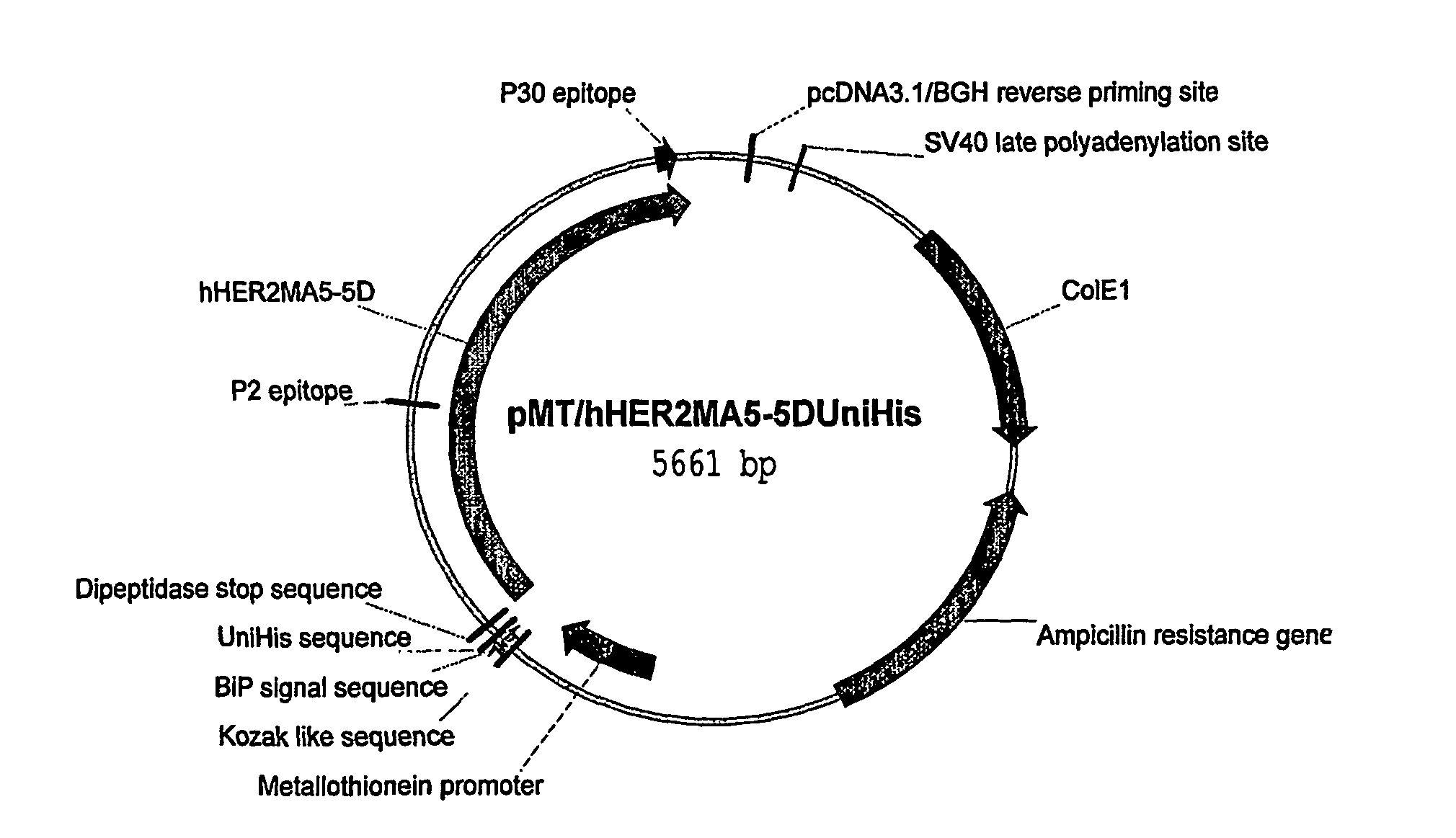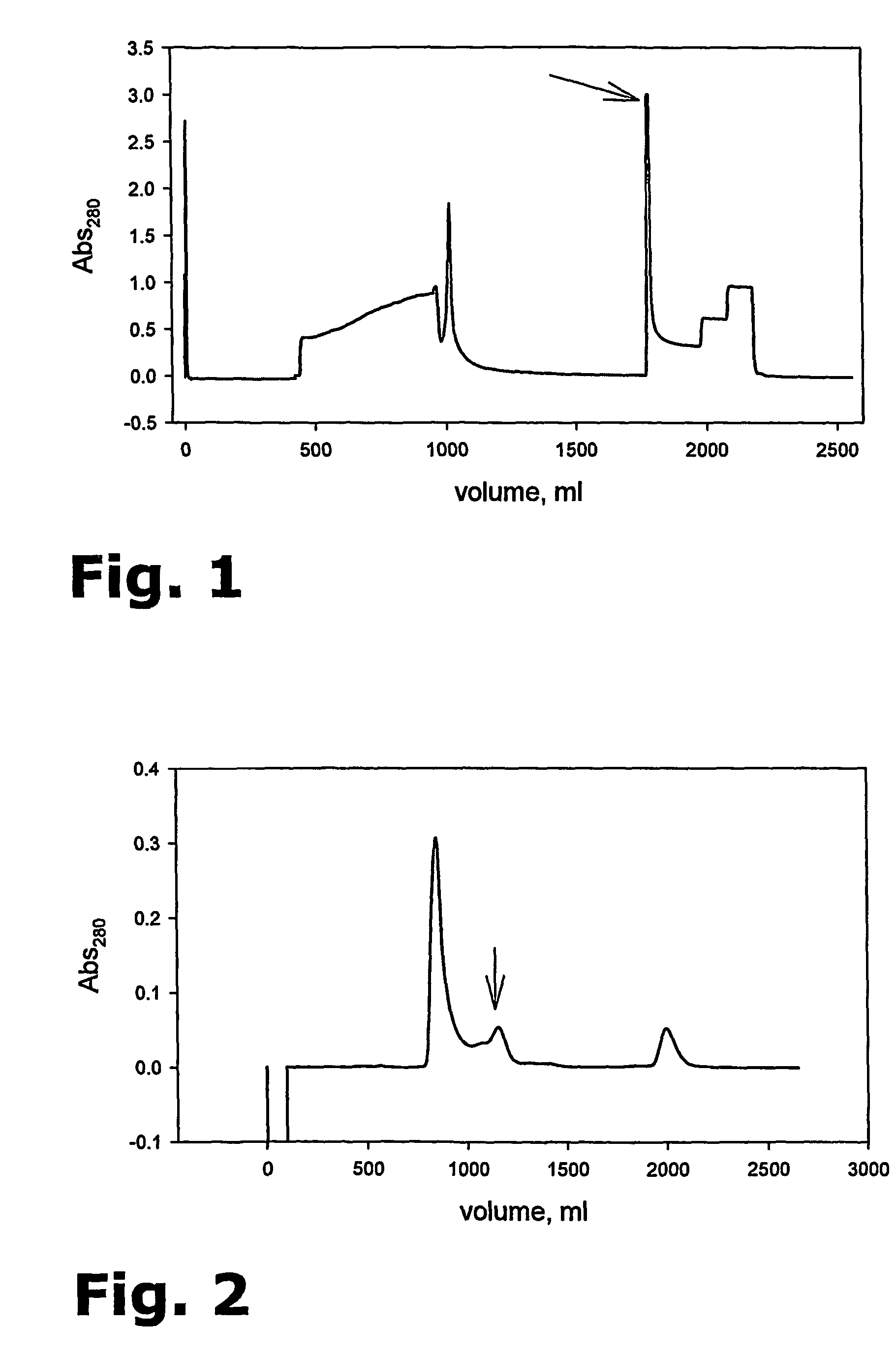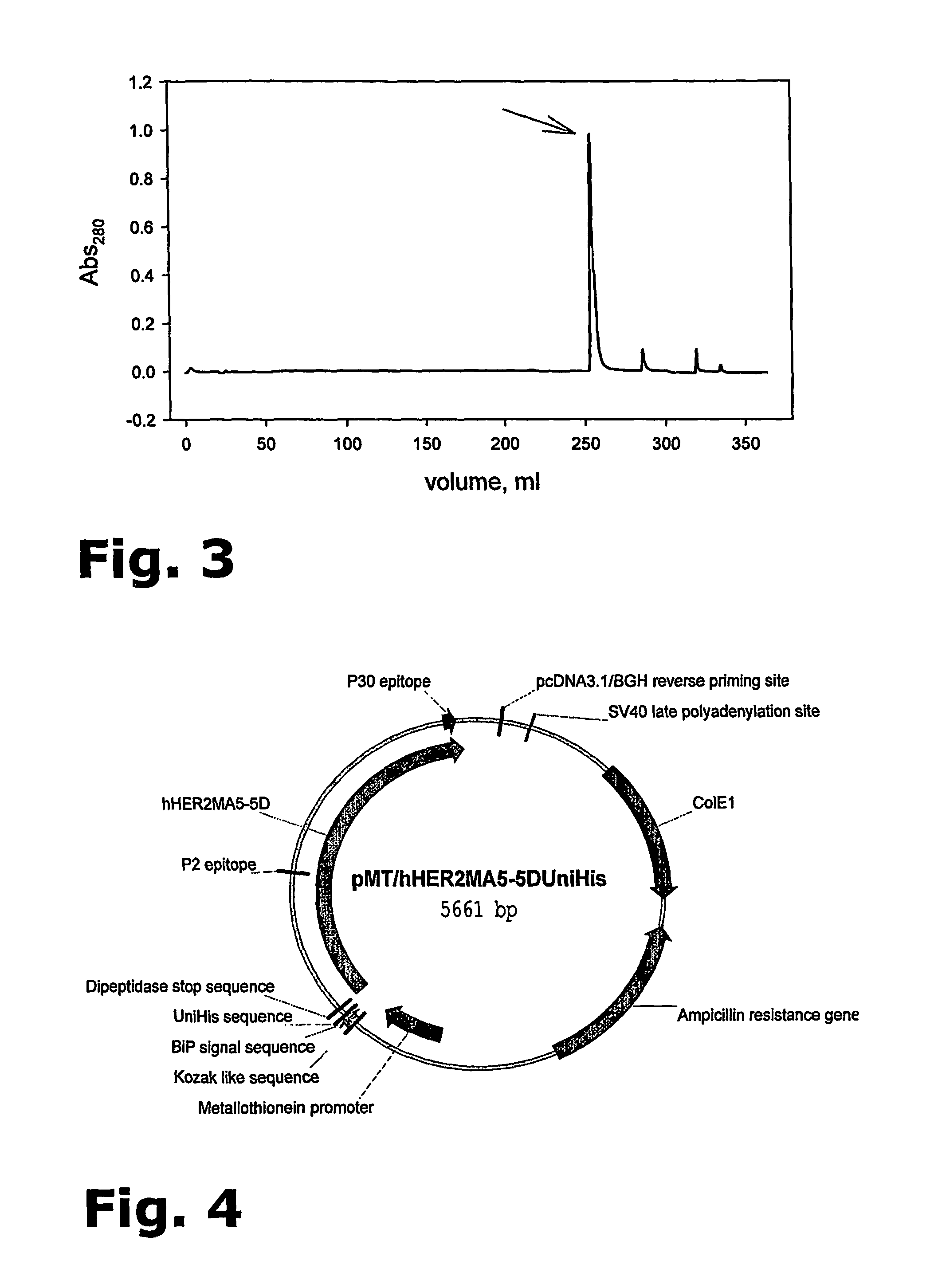Purification of HER-2 variants
a technology of recombinant proteins and purification schemes, applied in the direction of growth factor/regulator receptors, peptides, drug compositions, etc., can solve the problems that the purification schemes devised for recombinant proteins produced in bacteria, fungi, or mammalian cells are not necessarily the optimum choi
- Summary
- Abstract
- Description
- Claims
- Application Information
AI Technical Summary
Benefits of technology
Problems solved by technology
Method used
Image
Examples
example 1
Culturing of HER-2 Variant 104.1
Cell Line Production
[0095]A polyclonal culture of S2 Drosophila melanogaster cells was transfected with a pMT vector (DES® system, Invitrogen) containing the gene coding for the HER2 variant 104.1; the entire nucleic acid sequence of this pMT vector is set forth in SEQ ID NO: 1. The cells were in parallel transfected with a plasmid carrying a gene conferring hygromycin resistance enabling the usage of hygromycin for selection of transfected cells.
[0096]A limited dilution technique was used for isolation of single cell clones and a Master Cell Bank (MCB) was produced from the selected cell line.
HER2 Protein AutoVac Production
[0097]One vial from the MCB is resuscitated in a T-flask and propagated in shake flasks containing ExCell420 media (JRH) at 25° C. to obtain enough biomass for the inoculation of a bioreactor. A total of 45×109 cells is diluted into 3000 mL with ExCell 420 supplemented with 4 mM Glutamine, 0.1% Pluronic F68, and 0.5 mL / L PD30 antif...
example 2
Diafiltration / Concentration and Buffer Change
[0102]Before use, the fermentation supernatant from Example 1 is, if kept at −80° C., thawed slowly at 4° C. over night (the last 3 to 4 hours can be performed in cold water), and thereafter stored for a maximum of 3 days at 4° C. Otherwise, the fermentation supernatant is used directly.
[0103]The fermentation supernatant is centrifuged in a Sorvall RE 5C Plus Centrifuge in SCA3000 tubes at 10,000 rpm for 15 min, at 4° C.
[0104]Diafiltration is performed in a cold room at 5±3° C. on a Pro-Flux M12 (Millipore) with a Pellicon 2 Cassette filter 30 K 0.5 m2 (Millipore, Cat# P2B030A05). The filter is before use stored in 0.1 M NaOH. Before diafiltration the filter is therefore thoroughly washed through with milli-Q water: The standard reservoir is filled with milli-Q water (3 L) and washed with water through the filter until 200 ml is left in the reservoir. This procedure is repeated 3 times until a total of 12 litres has passed through the fil...
example 3
IMAC
[0114]The general chromatographic principle for IMAC is affinity between a “tag” on the protein and a metal ion chelate complex on the column matrix. The chromatographic matrix is POROS 20MC or, preferably, 50MC (both from Applied Biosystems) and the chelating metal ion is Zn2+. The 104.1 molecule is provided with a His-tag and the buffer system for binding of the His-tag to the column matrix is 50 mM Na2HPO4 / NaH2PO4, 0.1% Tween20, pH 7.5.
[0115]2-4 mg 104.1 per ml column material is loaded and subsequently eluted using 100 mM L-Histidine, 50 mM Na2HPO4 / NaH2PO4, pH 7.5, 0.1% Tween20. Alternatively, when eluting with 200 mM Imidazole, the buffer system for binding also contains 5 mM Imidazole.
Instrument: VISION Work Station (Applied Biosystems).
Software: Data analysis software for Vision, BioCAD 700E, version 3 series software, Perseptive Biosystem.
Detection: UV absorbance at λ=280 and 220 nm.
Conductivity: 0-200 mS
pH calibrated at: 7.0 and 10
Temperature: The procedure was made wit...
PUM
| Property | Measurement | Unit |
|---|---|---|
| temperatures | aaaaa | aaaaa |
| temperatures | aaaaa | aaaaa |
| temperatures | aaaaa | aaaaa |
Abstract
Description
Claims
Application Information
 Login to View More
Login to View More - R&D
- Intellectual Property
- Life Sciences
- Materials
- Tech Scout
- Unparalleled Data Quality
- Higher Quality Content
- 60% Fewer Hallucinations
Browse by: Latest US Patents, China's latest patents, Technical Efficacy Thesaurus, Application Domain, Technology Topic, Popular Technical Reports.
© 2025 PatSnap. All rights reserved.Legal|Privacy policy|Modern Slavery Act Transparency Statement|Sitemap|About US| Contact US: help@patsnap.com



